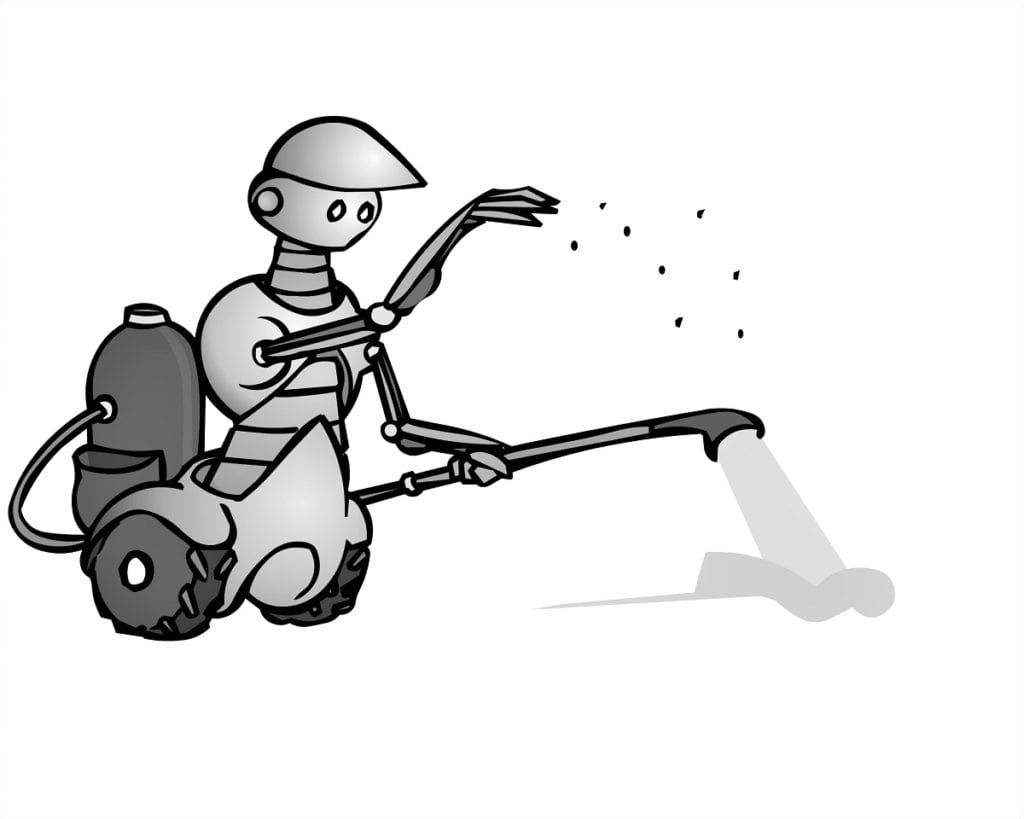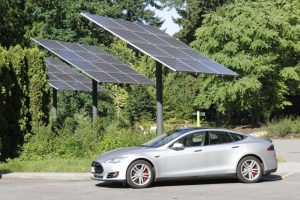Farmers have been dealing with weeds since the dawn of civilization. Over the millennia, they have used tillage of all types, herbicides, and even cover crops to suppress weed populations.
Current farming methods deal with weeds either by spraying entire fields or by using manual laborers to physically remove weeds by hand. But these approaches have their problems.
While labor can be cheap, the cost of training workers accumulates over time.
This is especially true in the United States, where a high turnover of low-skilled workers can cost a farmer thousands of dollars each season. Some American farmers have to pay to train as much a third of their work force each year.
Herbicides, on the other hand, have an environmental impact, are wasteful, and can also add to the cost of farming.
The world’s most widely-used broad-spectrum herbicide, Roundup, contains glyphosate, which researchers have linked to cancer and non-Hodgkin’s lymphoma.
The excessive use of herbicides has also led to resistant “superweeds,” which force farmers to use more and more chemicals to keep weeds at bay.
Now two robotics companies want to address these issues by enabling automated robots to do the weeding.
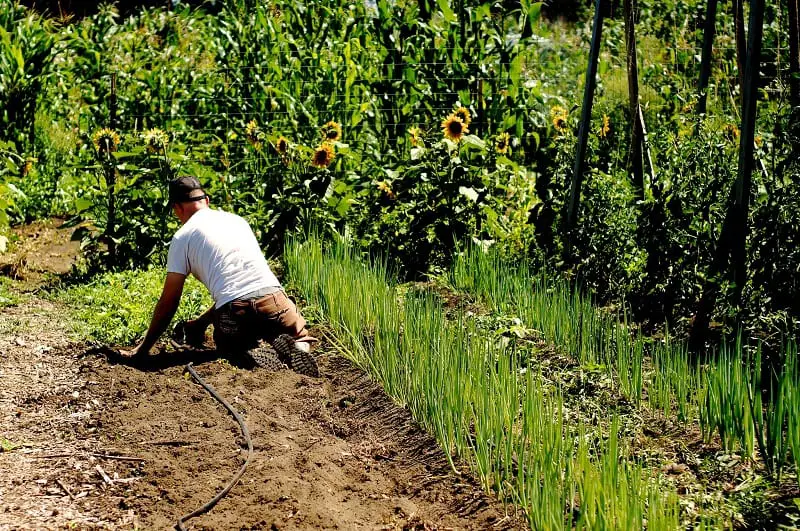
(Photo: Ariana Rose Taylor-Stanley/Flickr)
“This One is Doable”
While weeding might seem like a relatively easy task, it actually requires a lot of machine intelligence to pick out weeds among crops. Kansas-based Greenfield Robotics builds weeding robots equipped with sensors that allow them “see” the planted rows in the field through cutting edge machine vision technology.
“We’ll show up at a field in spring, and we’ll have about ten of these robots, put them in a field, and they will drive themselves between the rows of crops, and maintain the weeds between the row,” says Greenfield CEO Clint Brauer.
Brauer says the idea behind Greenfield’s chemical-free, no-till weedbots came to him after he attached a mower to his tractor to clear a field overrun with pigweed.
He wondered whether a swarm of lightweight, fully-automated robots could do the job for him more efficiently.
The Kansas-born entrepreneur reached out to an old friend, Steven Gentner, founder of RoboRealm, a machine vision software company.
“His exact words, ‘I get pitched stupid ideas all the time that aren’t going to work for a long time. This one is doable,’” Brauer says.
With Gentner’s help, Greenfield’s second generation weedbot has now acquired a “full automatic with onboard computing” component. The system allows remote computer monitoring so that a farmer can manage a team of bots from home, away from the field.
Both Bauer and Gentner are hopeful that their bots will one day help farmers cut costs by reducing their reliance on chemical herbicides. “Agriculture right now is just booming in terms of robotics, says Gentner. “It makes so much sense.”
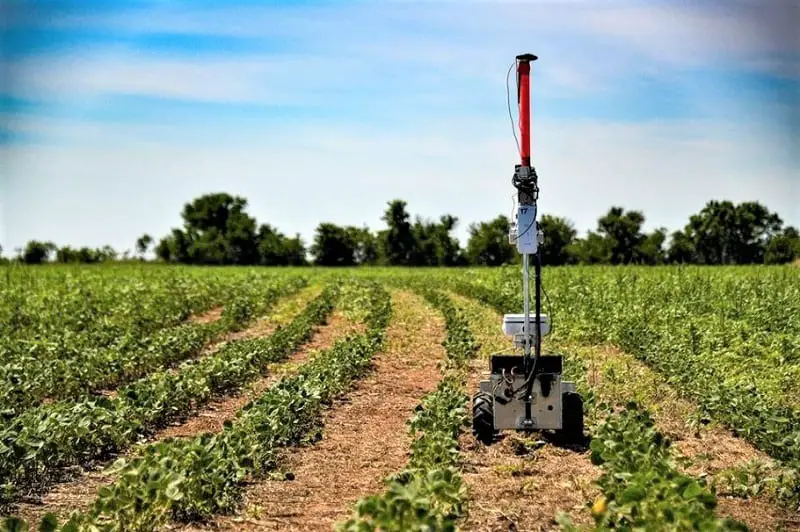
(Photo: onezero.medium.com)
Tom, Dick, Harry, and Wilma
The pesticide and seed industry is enormous. Experts estimate its worth at around $100 billion. Of that, herbicides account for $26 billion.
But companies that sell chemical herbicides have a much more limited market in the British Isles and most of Europe, despite farmers having a similar problems with weeds.
The European Union has banned many herbicides that are popular elsewhere in the world. The ban came after a crackdown on chemicals deemed toxic and harmful to the environment.
That’s where robotics comes in…
The Small Robot Company is a UK-based startup that makes robots that electrically “zap” weed seedlings. Entrepreneur and design expert Ben Scott-Robinson and fourth-generation farmer, Sam Watson Jones, had initially established the company with a focus on robotic field mapping solutions. They quickly branched-out to weed-killing after seeing the high demand for weedbots.
The company began with a four-robot crew – Tom, Dick, Harry, and Wilma. Tom starts off the weed-zapping process by rolling through a field and mapping it. That information is uploaded to Wilma. Wilma then tells “Dick,” the weed zapper, to get to work.
The zapper bot – which is about the size of a small car – follows Wilma’s directions, identifying weed seedlings based on prior mapping data. Once it identifies target weed seed, the bot sends a mini “lightning strike” through it, leaving cash crop seedlings intact.
The UK startup intends to expand its use of robotics technology across the entire agricultural production process. Company CMO Sarra Mander sees robots feeding, seeding, and weeding large tracts of agricultural land in the near future.
“Our focus is on delivering precision farming at a level that has never previously been possible,” she says. “Our AI-driven technology allows for a level of autonomy, accuracy and detail that now makes it possible for smaller farms to be profitable.”
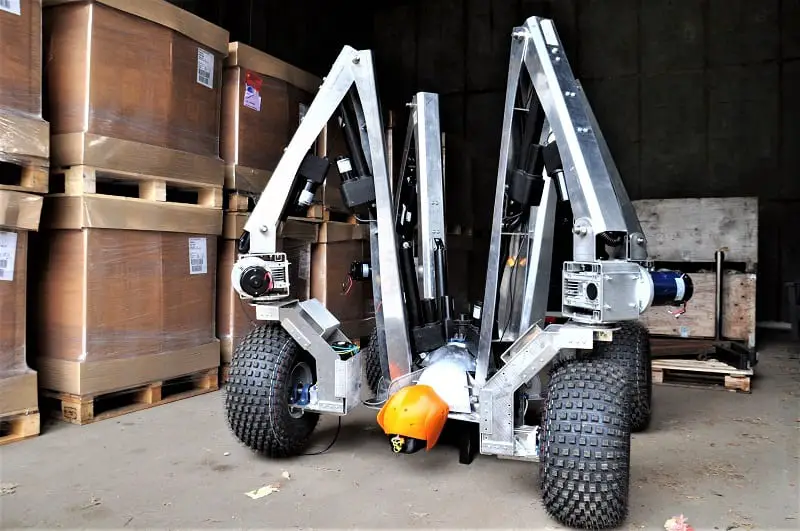
While the development of agricultural AI-driven robots might be at its early stages, many farmers already anticipate a revolutionary transformation in the way they conduct business. Brauer says much of the excitement is due to the fact that current production systems simply don’t work anymore. Farmers are losing control of their fields while expenses rise.
“They then have two choices, which is to go back to tilling, which no one wants to do, or they can start working with our system,” says Brauer.

